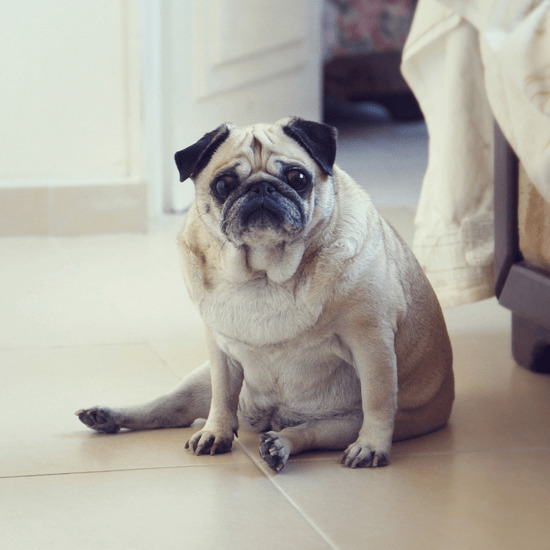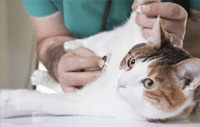People aren’t the only ones fighting a battle of the bulge. It turns out, in many homes, our pets are overweight or obese too.
In fact, a recent study suggested that being too heavy cut up to 10 months off a dogs life particularly for breeds like Labrador Retrievers, Cocker Spaniels and Beagles with common complications including arthritis, diabetes, respiratory problems and kidney disease.
Cats are suffering too. A study of feline diabetes found that more than half of indoor cats are dangerously overweight.
And obesity isn’t just a quality of life issue for pets. Insurance claims or medical costs if your pet doesn’t have insurance are rising astronomically too.
Pet dieting can be challenging but many of the most effective ways for us to lose weight also apply to our best friends:
- Count calories: Pet food feeding guidelines usually apply to un-spayed or un-neutered active dogs and cats so if your pet is spayed or neutered and doesn’t get out much, you’re probably feeding him or her about 25% too many calories. Your veterinarian is the best person to ask.
- Good measure: If you tend to fill your pets bowl by sight, you’re likely overfeeding. Use a measuring cup. Portion control is a key to bringing your pets weight down.
- Snack attack: Snack munching for humans often happens under the radar we eat more than we care to admit and what we do eat tends to be high in sugar and fat. Limit your pets snacks to low-calorie, healthier items like fruits and vegetables as well as salmon and tuna.
- Ear plugs: Dogs and cats are smart and they likely know that, with a little whining, you’ll refill their bowl a few more times than necessary. Your pets crying may break your heart but don’t cave wear ear plugs if you have to!
And as with humans, dieting isn’t the only way to stay fit. Check out our fitness tips for pets.
How have you kept your pets weight in check? Please share your own experiences in the Shop Talk Blog community forum!
Did you know: It could be medical
If diet and exercise aren’t bringing your pets weight down, there might be an underlying medical condition like low thyroid levels or an excess of adrenal hormones. Ask your veterinarian to look into it. (Source)



I have a jack russell beagle mix and have allowed her to become overweight. Thanks for all the information.linda
Real great place to shop
My wife and I have owned German Shepherds for will over 45 plus years. Yes, we have had our shepherds go on diets but my current puppy nearly a year old next month can’t seem to gain any weight. I know that my dogs all loved to run even my new baby but she eats well but she does not gain any weight. When we first received her the vet stated that she has never seen a dog with so many different types of worms. She was found to have the worms an then long treatments but she was found last month to be free of all worms and she still has not gained any weight. Any suggestions as all my dogs ate or now eating Iams, plus we mix her food with Mighty Dog wet food. Any suggestions that we can try besides human food which I will not do.
J.R. Lucas
This is so true in my family and people I know. We Americans so over eat. Stop when ur full. I know I’m guilty of feeling sick from eating to much. If we are eating to much you know are animas are. Most people love there pets like little humans. I know I do . My husband is so guilty of feeding our dogs whatever he eats. They stand there starting at him barking and doing whatever they can until he gives in, and he does,everytime. Sometimes he just gives them human food. They honestly know better then to come to me. Once in a great while I will give them a little chicken fat or raw meat but there is nothing worse then your animals begging for food. My dogs are not over weight which I’m very suprised but it will catch up to them just like it does us. I tell him to stop it but who know what he does when I’m not around . Also having guests over and it’s time to eat our dogs have to one go outside or be put in our room with the door shut because they beg. Drives me nuts….. I will fix this problem.